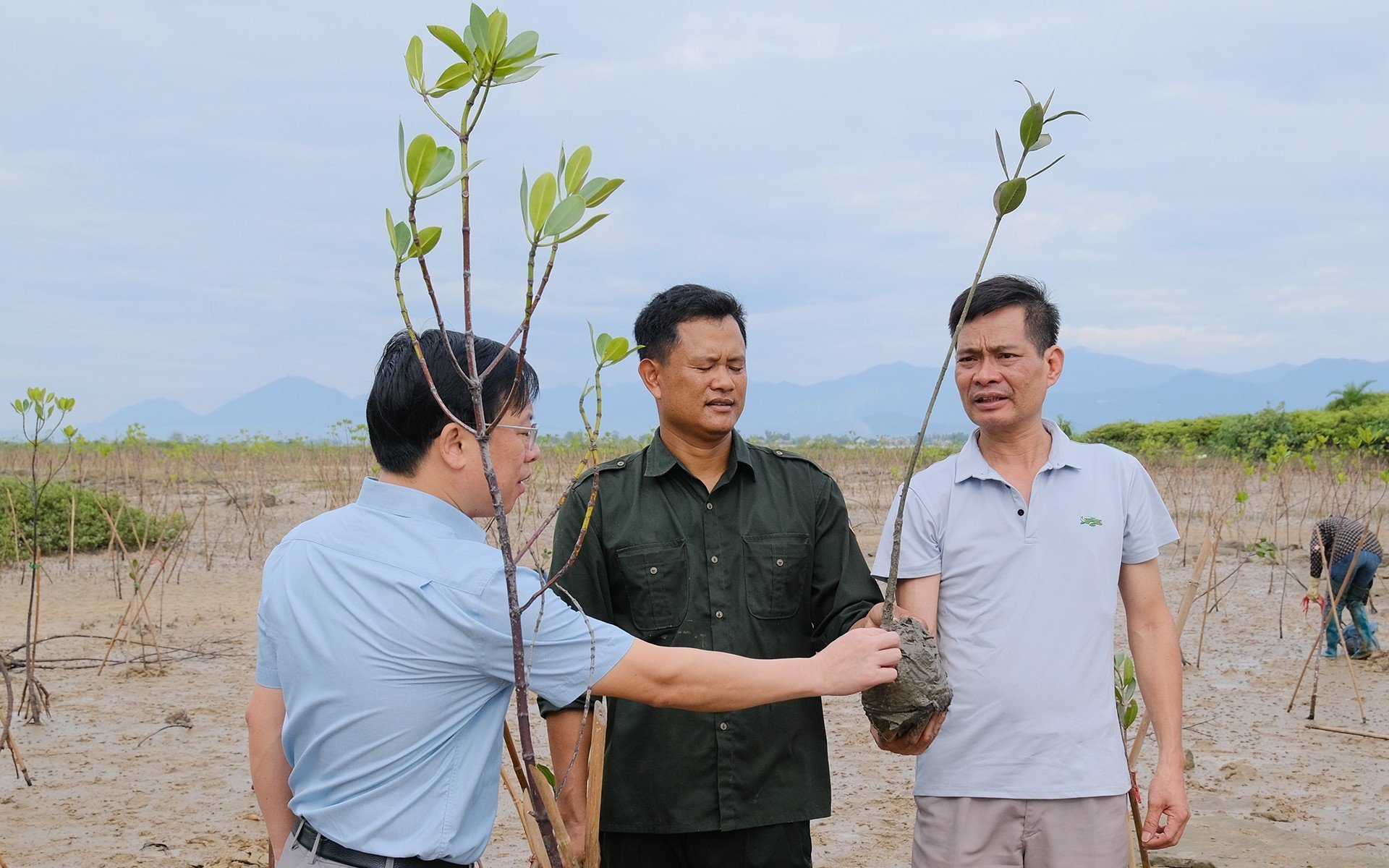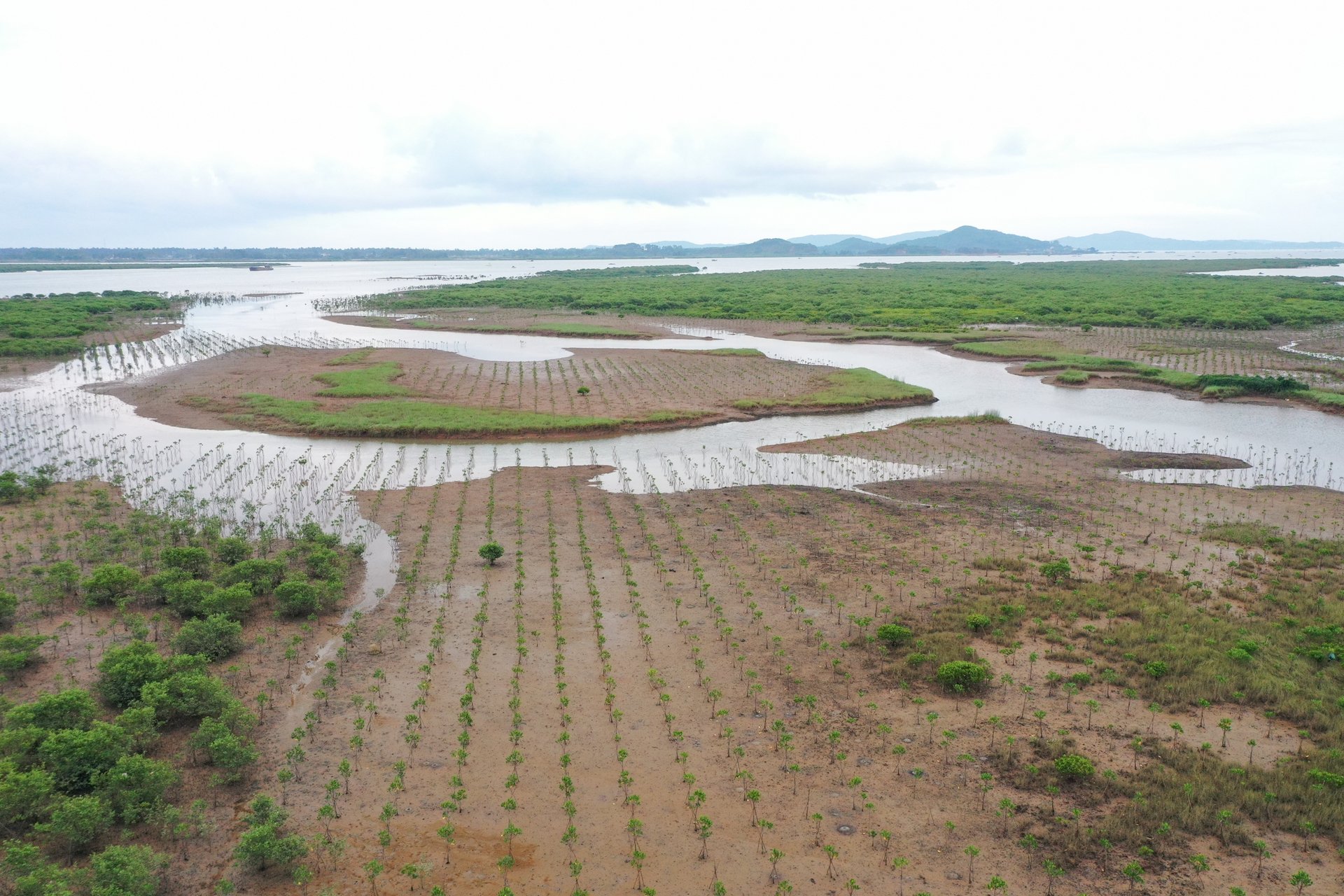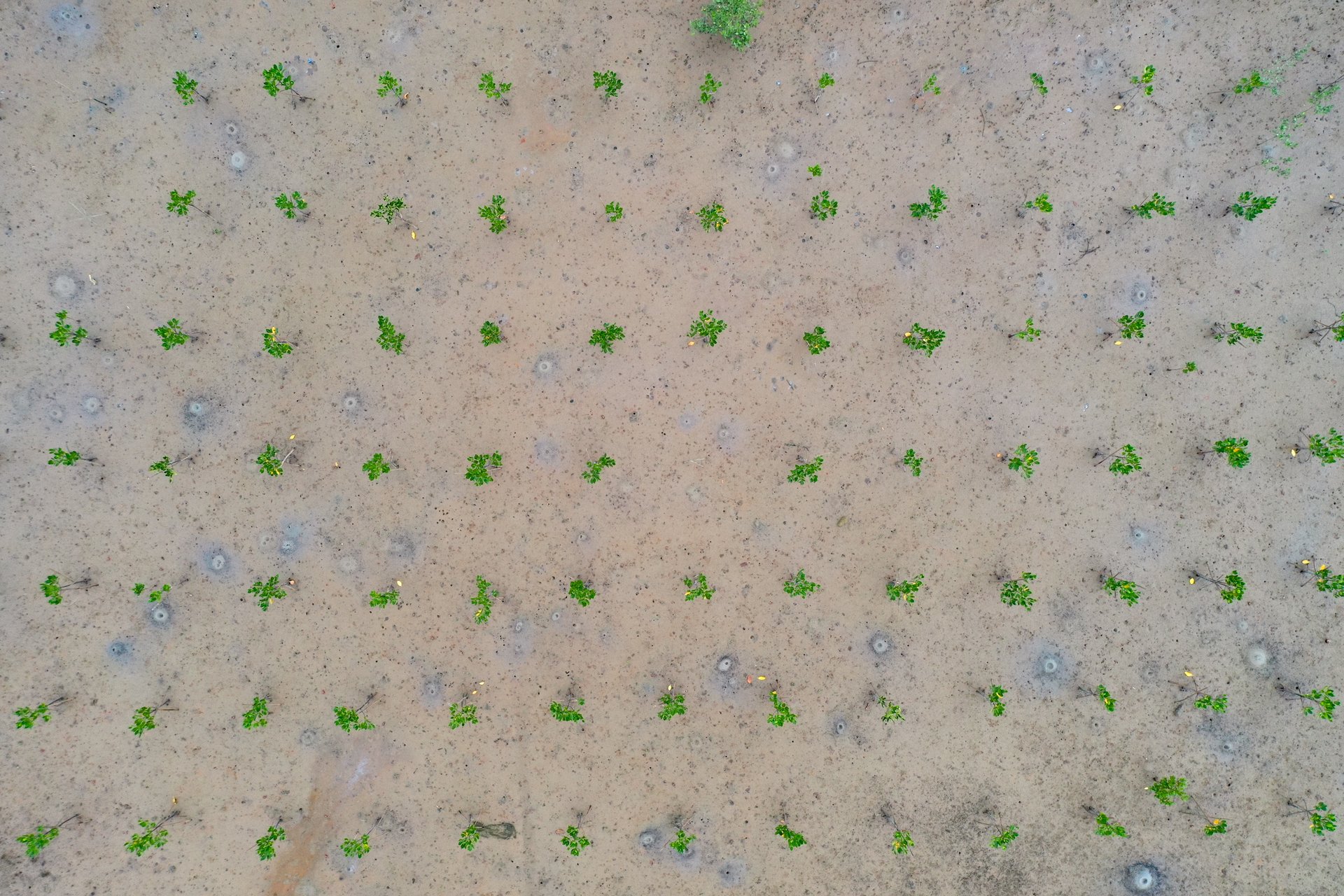November 28, 2025 | 02:51 GMT +7
November 28, 2025 | 02:51 GMT +7
Hotline: 0913.378.918
November 28, 2025 | 02:51 GMT +7
Hotline: 0913.378.918

Mr. Pham Hong Vich, Deputy Head of the Forestry CPO Committee and Director of the FMCR Project, inspecting the progress of mangrove reforestation in Quang Ninh province. Photo: Bao Thang.
Over the past three years, nearly 1,000 hectares of mangrove forests have been planted in Quang Ninh province as part of the "Forest Sector Modernization and Coastal Resilience Enhancement Project" (FMCR).
This component under the FMCR project was approved for investment by the Prime Minister in 2018, with investment capital from the World Bank. Accordingly, the project was implemented in eight coastal provinces and cities, including Quang Ninh, Hai Phong, Thanh Hoa, Nghe An, Ha Tinh, Quang Binh, Quang Tri, and Thua Thien Hue.
The project's goal is to restore, develop, and sustainably manage coastal forests in these localities. Furthermore, it aims to contribute to the restructuring of the forestry sector, enhance resilience, increase longevity, and reduce the costs of construction, maintenance, and operation of coastal infrastructure and other related facilities. Additionally, the project seeks to develop livelihoods and improve income for coastal communities through reforestation and forest protection activities.
According to Mr. Pham Hong Vich, Deputy Head of the Forestry CPO Committee and Director of the FMCR Project, the project was originally designed to be implemented over six years between 2017 and 2023. However, fundings were only allocated in 2019, and the project faced disruptions due to the COVID-19 pandemic.
"The FMCR project involves multiple local communities in the process of planting, nurturing, and protecting mangrove trees in areas prone to saltwater intrusion. When the COVID-19 pandemic occurred, we were unable to gather enough participants for training and knowledge transfer," explained Mr. Pham Hong Vich.

The recently planted mangrove forest area located in Mong Cai city, Quang Ninh province. Photo: Tung Dinh.
The FMCR project was delayed by roughly four years as of its official commencement date at the end of 2021 compared to the original design, and considerably longer if the project surveying and planning stage is taken into consideration, which started in 2016.
"There was no extension granted for the project to compensate for the time lost due to the aforementioned objective reasons. As a result, we were forced to accelerate the progress and achieve optimal results when FMCR concludes its loan on December 31, 2023," added Mr. Vich.
According to the project management's calculations, the total disbursement and implementation volume of FMCR can reach over 50% of the original design until the end of 2023, which is equivalent to approximately one-third of the design period.
Mr. Pham Hong Vich believes that this endeavour requires great efforts from project management at all levels, from central to local governments, and especially the contributions of local governments and people in the project sites.
In addition to the challenges stemming from the inability to meet the original design, the indirect impact from the Covid-19 pandemic has been felt, as local governments were forced to utilize other funding sources to carry out reforestation activities on areas originally allocated for the project. "This has led to a reduction in some of the project's land reserves," added Mr. Pham Hong Vich.
Furthermore, in order to promote socio-economic development, many local governments have repurposed a portion of the project's land areas to meet their objectives. Due to the 4-year delay in implementation, the project can only carry out reforestation activities in accessible areas, whereas locations requiring complex construction methods were abandoned.

Despite countless challenges, the FMCR project is being accelerated as it approaches its conclusion at the end of 2023. Photo: Tung Dinh.
Valuable lessons learned
According to Mr. Pham Hong Vich, there are several important lessons that can be drawn from the FMCR project:
Accelerating the funding approval and allocation process: It is crucial to expedite the process of project approval and funding allocation to avoid unnecessary delays. Waiting for extended periods to secure funding can hinder project implementation.
Avoiding overlapping planning: Local planning should be effectively coordinated to prevent conflicts between project land use and other economic and social development plans. Definite and long-term local planning can facilitate the execution of new projects.
Emphasizing community involvement: Involving local communities in project implementation is essential. This not only improves their quality of life and livelihoods but also reduces dependence on forests while ensuring sustainable forest protection.
Accordingly, when the rights and interests of the community are aligned with the project, local residents are more likely to participate, make meaningful contributions, and engage in project monitoring. The project's outputs can be effectively safeguarded with the help of the local communities.
Translated by Nguyen Hai Long

(VAN) According to Mr. Vo Minh Thanh, Director of the Tay Ninh Department of Agriculture and Environment, Resolution 57 has created a new development pathway for the locality, shifting from traditional toward modern agriculture.
/2025/11/26/4909-2-154329_878.jpg)
(VAN) Pearl grouper farming in HDPE cages not only delivers economic efficiency but also contributes to protecting the environment, creating jobs, and promoting marine-based experiential tourism.

(VAN) The model of making a living under the forest canopy through the agroforestry system in Van Son commune, Bac Ninh province, is expected to generate an annual income of approximately VND 30 million/ha.

(VAN) Many enterprises in Can Tho are harnessing natural energy and reducing greenhouse gas emissions in their production processes, thereby contributing to the promotion of a sustainable green transition.
/2025/11/24/3536-2-112800_176.jpg)
(VAN) Dong Nai now has tens of thousands of hectares of forests certified for sustainable management, and this area will continue to be expanded in the coming period.

(VAN) Vinh Ha hamlet (Dai Xuyen commune, Hanoi) is shifting away from small-scale farming as households adopt bioscurity into their breeder chicken models.

(VAN) Heavy rains make aquatic species more vulnerable to disease. Proactive water management and high-tech systems help farmers prevent outbreaks and protect yields.